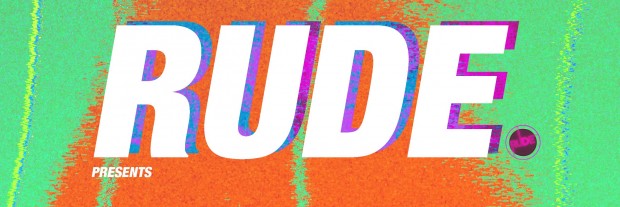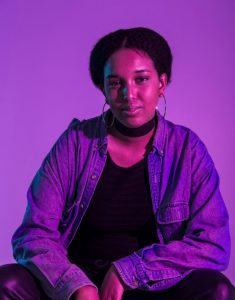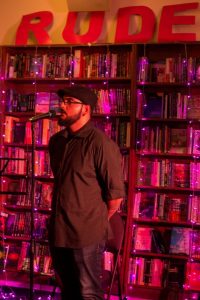

Toronto queer collective bring the Funk and Rhyme to the city’s gay village
EntertainmentNews Feb 17, 2017 Rob Lowrey

The streets of Toronto’s Gay Village got funky this past weekend.
On Feb. 11, Toronto queer collective, RUDE “disrupted” the gay village in the city’s downtown core.
Funk and Rhyme, the collective’s second official event, introduced spoken word and funk music to the Glad Day Bookshop – the oldest running gay and lesbian bookstore in Toronto.
Ferdinand Ngo, the collective’s communications lead, says that Funk and Rhyme marked many firsts for the group.
“This is the first time that RUDE is actually taking up space and creating space in the village for QTBIPOC (Queer, Transgender, Black, Indigenous, People of Colour),” Ngo says. “I think that [QTBIPOC] people are just so disenfranchised with anything that has to do with the village.”
Ngo says that many of the events that are provided for people of colour in the village make them feel uncomfortable. “These events have been catered to us- but we don’t feel safe. There’s still a lot of violence that happens.”
With the lack of representation, now is a crucial time for people of colour to make room for their voices in Toronto’s gay neighborhood. “I think it’s about time that we start taking up space and creating these spaces for queer people of colour,” Ngo says.
Timing was also key for the event. Hana Jama, the latest addition to the collective, says that it’s important that they’re taking up space in the community, during Black History Month.

“I like that we’re taking up space. Especially during this month. Personally for me, black history month is really important. I think it’s good that we’re doing it this month in this location. I think everything’s very specific,” says Hana Jama about Funk and Rhyme. (Photo courtesy of The RUDE Collective)
“I think it’s cool that we’re doing it in February during Black History Month. Specifically, when we talk about funk, it started off with Black people in America, you know with African American folks. Same with poetry. When we’re talking specifically about spoken word poetry, that’s a Black thing.”
Many subcultures in society have derived from the spoken word. From hip-hop to rap, they intertwine with spoken word as a form of expression through past experiences. Spoken word has been a powerful art form for generations. However, it was African American’s who laid the foundation for the art form, which remains crucial in their history and culture.
For Funk and Rhyme, RUDE wanted to incorporate artists from groups who’ve recently seen rampant acts of hate.
“We’re just trying to centre voices of people who are starting to get attacked right now. When you think of the rampant acts of Islamophobia and anti-Blackness that’s been happening recently, even in the city,” says Jama.
The first performer of the evening was Shadiya Aidid – who’s recently been featured on CBC Arts, where she performed her piece ‘Dear Mr. Presidential with no credentials’
“People talk about life, and most of the time they talk about their lived experiences,” Aidid says about her poetry. “For me, I do that and I’ll also talk about identity politics, being Black and Muslim and the intersections and separations.”
Spoken word artists often speak about their past experiences as a form of therapy. The good, the bad and the ugly – it’s a form of release. Mona, another performer of the evening, says that in order to speak about an experience, you need to understand it.
“I think to take an experience you need to understand the experience and you need to have lived the experience.”
Mona also believes that taking care of the audience is important when performing.
“If you are writing a poem about a lived experience you need to be ready that someone in the audience – as esoteric as your experience may have been – somebody else in the audience has already lived it. Spoken word is about connectivity to that understanding truths. To understand that other people have the truths.”
For Bassam, the third artist of the evening to take the mic, his beliefs are a little different than Mona’s.

Toronto-based, national award winning spoken word artist, Bassam, performing at the Glad Day Bookshop in Toronto’s Gay Village (Photo courtesy of The RUDE Collective).
“You could essentially write, perform, and talk about anything you want from the perspective of someone.”
Bassam produced a piece about the Pulse nightclub shooting of June 2016 -the largest mass shooting on U.S. soil that took almost 50 lives – from the perspective of who someone could have been there.
“I don’t live in Orlando. I wasn’t at the Pulse nightclub that night. I wrote a poem from the position of someone who very well could have been there. It hit me and hurt as a queer middle eastern male. It’s not an identification piece but – to generalize it, to look outside of that from a bird’s eye point of view.”
Each artist had a 20-minute set. In between sets, there was an open-mic opportunity for people to go up and express themselves.
One of those that stepped up to the mic was Toronto-based DJ and rapper, DJ Myst – who would bring the funky beats and soulful element to the dancefloor later that evening.
“A lot of times you just go to spoken word events or just funk and soul dance parties – but you don’t ever see that both happening in one space,” Jama says. “Spoken word was at its prime was around the 60’s and 70’s and funk and soul were big genres than.”
This was the first spoken word event for the RUDE collective- but it’s definitely not the last.
“We’re going to start doing a monthly thing at Glad Day and it’s more than likely going to incorporate a lot of spoken word artists for each event,” Ngo says.
On Feb.25, the collective will be hosting their second major event, Rude Second Edition: Queer Love and Desire. It will be a night focused on sex and body positivity with artwork and themes that focus on decolonizing love and desire.
Spoken word will be a notable portion of the evening, with pieces from Kym Nacita, a artist who focuses on how she sees love and desire, and decolonizing the ideas that surround it.
The event has around 230 interests and 130 people saying they’re going on Facebook. 40 percent of the proceeds from the event will go to Egale Youth OUTreach Counselling Centre (EYO), providing counseling, homelessness and suicide crisis services for LGBTQ+ youth.
Tickets for the event will be $20 at the door.
